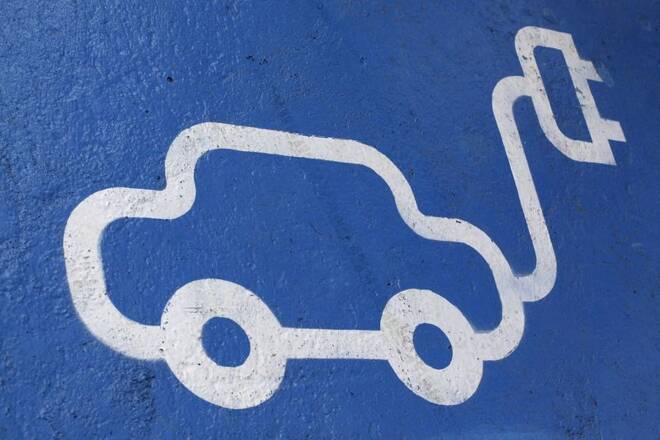Advertisement
Advertisement
Solid Power aims to ship first solid-state battery cells by year-end to BMW, Ford
By:
By Paul Lienert (Reuters) - Solid Power, a developer of solid-state batteries for electric vehicles, aims to begin shipping pre-production battery cells by year-end for validation testing by partners BMW and Ford Motor, the company said on Monday.
By Paul Lienert
(Reuters) – Solid Power, a developer of solid-state batteries for electric vehicles, aims to begin shipping pre-production battery cells by year-end for validation testing by partners BMW and Ford Motor, the company said on Monday.
In an interview, Doug Campbell, Solid Power’s chief executive and co-founder, said the Colorado company has set up a pilot production line to provide validation samples to automakers while looking for a manufacturing partner to begin producing its cells as early as 2026.
One prospective partner, he said, is Korea’s SK Innovation, which is building joint-venture battery plants with Ford in Tennessee and Kentucky.
“Long term, we do not endeavor to be a cell producer,” he said.
Campbell said Solid Power has sufficient pilot production capacity to provide prototype battery cells to other vehicle manufacturers, but declined to provide specific detail.
The company, which went public through a reverse merger in 2021, drew early investments from Hyundai and Samsung, in addition to Ford and BMW.
Campbell acknowledges the intense competition in solid-state battery development among the “big boys – groups like Toyota, Panasonic, Samsung, LG Energy Solution, Hyundai and CATL.”
“We’re in a space among a lot of very prominent and credible players,” he said.
Like most of those companies, Solid Power’s battery cell features a sulfide-based solid-state electrolyte, the medium through which lithium ions flow between positive and negative electrodes during charging and discharging.
Battery cells with solid-state electrolytes have a significantly lower risk of catching fire from internal shorts than those with liquid electrolytes.
Campbell said Solid Power’s cells, which currently use silicon-rich anodes and nickel-cobalt-manganese cathodes, have the potential to hold more energy – thus providing electric vehicles with longer range – and cost less than conventional lithium-ion batteries.
Solid Power also has designed its solid-state cells to be compatible with current lithium-ion manufacturing processes.
(Reporting by Paul Lienert in Detroit; editing by Barbara Lewis)
About the Author
Reuterscontributor
Reuters, the news and media division of Thomson Reuters, is the world’s largest international multimedia news provider reaching more than one billion people every day. Reuters provides trusted business, financial, national, and international news to professionals via Thomson Reuters desktops, the world's media organizations, and directly to consumers at Reuters.com and via Reuters TV. Learn more about Thomson Reuters products:
Did you find this article useful?
Latest news and analysis
Advertisement
